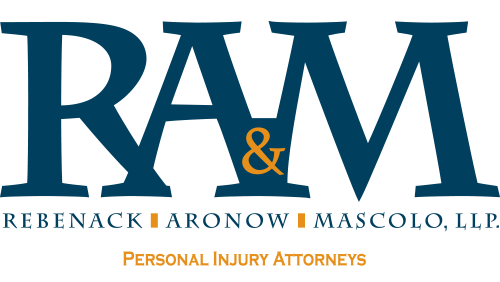New Jersey Motorists Face More Winter Driving Truck Accident Risks This Winter
Between 2007 and 2016, weather-related crashes comprised 21% of all vehicle accidents and 16% of accident fatalities across the United States. Overall, slushy and icy pavement cumulatively made up about 30% of the weather-related crashes. To plan a safer winter driving strategy, New Jersey motorists must understand the most common risks and how to mitigate them.
Slick Pavement Risks
The biggest risk is wet pavement. It was to blame for 70% of weather-related crashes between 2006 and 2017, and 76% of weather-related fatalities were due to wet pavement. Rain accounted for 46% of both weather-related crashes and weather-related fatalities. Snow and sleet comprised 18% of weather-related accidents and 13% of weather-related fatalities. Icy pavement was to blame for 13% of weather-related crashes and 10% of weather-related fatalities.
The wet pavement statistics include data from all 12 months of the year. While it is common during spring or summer rainstorms, wet pavement is often an overlooked risk in the winter. For example, drivers often assume that wet pavement is not as dangerous as icy pavement. They may drive faster when the temperatures are higher and there is water on the pavement. However, wet roads increase your stopping distance, limit your visibility and become more disastrous with added substances. Dirt, debris, oil and fuel can mix with water on the road to create even more sliding hazards. Most motorists drive more cautiously when they know that there is ice or slush on the road.
The Winter Driving Risks Increase With Large Trucks
Unfortunately, large trucks are more susceptible to weather hazards. If you follow a big truck too closely on a slick road, you may be in a rear-end accident if that driver slows down. Also, keep in mind that the brakes of big trucks work differently than the brakes of cars. They take longer to slow down and stop. If you merge in front of a big truck and must slow down suddenly, the truck can crash into your car. When the pavement is slick, the likelihood of this happening is even greater.
Wind Risks
The Northeast often has fierce winds during the winter. If you see a wind advisory, it often means that big trucks should not be on most bridges or be using other specified stretches of roads. Fatal truck crashes can happen when semis travel on bridges or roads that they are not supposed to use during periods of strong winds. For large trucks, wind can cause their trailers to sway. If a truck is partially loaded, the load could shift and cause an imbalance. This can make the trailer roll. Swerving truck drivers can hit your vehicle and cause a serious accident. When the pavement is slick on a windy day, there is an added risk of a semi or its trailer sliding.
Precipitation Risks
In addition to sliding, it is important to remember the other risks that come with precipitation. Snow, rain and fog can greatly reduce visibility for truck drivers. Furthermore, there may be even worse visibility with rain if you or other drivers have worn windshield wipers. Big trucks already have limited visibility. When you combine these factors with other winter driving hazards, it is safe to assume that a truck driver may not see you make a lane change. They may also make an unexpected move if your vehicle is not clearly visible.

Invisible Dangers
With big trucks, there may be dangers that you cannot easily see when you drive during the winter. The cold weather and cloudy days make some people feel sleepy, and you might not see a truck driver getting fatigued. Although some truck drivers swerve back and forth when they are sleepy, others could gradually veer off the road or into your lane. Also, you may not always see a truck driver using a cellphone, eating or doing something else that takes attention away from the road. Unfortunately, not all drivers actively try to avoid distractions when the weather is bad or when roads are slick.
How to Minimize the Risk of a Winter Driving Truck Accident
You are likely to encounter inclement weather, moisture and distracted drivers on the roads this winter. Although you should also be vigilant in looking for distracted motorists, it is especially important to pay attention to big trucks. Their size, different brakes, multiple wheels and trailers add more risks. In most truck collisions, the occupants of smaller passenger vehicles usually experience the worst injuries and the most vehicle damage. These are some tips to help you avoid winter truck accidents:
- Turn on your lights whenever you drive.
- Replace your windshield wipers.
- Leave plenty of space between your car and the back or front of a large truck.
- If you must pass a large truck, pass as quickly on the left as you are safely able to do so.
- Avoid bridges and slick roads when there is strong wind.
- Keep a distance from clusters of vehicles that are trying to pass a big truck.
- If your tires are worn, replace them with suitable tires for winter driving.
- Have your vehicle inspected for any risks that could make winter driving more dangerous.
Some accidents can be avoided with better planning. Keep yourself informed of the weather forecast every day. If you must travel when there is a risk or warning of winter weather, check on road conditions before you plan your route.
What to Do After a Truck Accident
New Jersey truck accidents can happen to anyone. By following safety suggestions, you reduce the chances of serious injuries or fatalities. If you are in an accident, it is usually better to stay in the vehicle until help arrives. You could put yourself in more danger if you are standing along a busy road. The risks are greater if there is inclement weather or limited visibility for passing motorists. However, you should try to exit the vehicle and stay far from traffic if you are in more danger by staying in the car. Call 911 if you can do so. If you can take photos of the scene from where you are, try to take some clear pictures. Do not admit fault or talk about potential fault to anyone at the scene of the accident. Cooperate with the police when filing a report.
Once you have received medical treatment for your injuries, notify your insurance company about the accident. Do not discuss fault. Instead of talking to the truck driver’s insurance company, attorney or any other affiliated party, call a New Jersey truck accident lawyer. If the truck driver is partially or fully to blame for the accident, you may receive money to compensate you for medical expenses, lost income and other related expenses. An attorney will do everything possible to provide evidence of the truck driver’s negligence or fault and seek a fair award on your behalf. Legal counsel will also handle communications between parties. When attorneys calculate settlement projections, they consider your past, current and future medical needs, limitations and living expenses. If you were in a truck accident in New Jersey, call RAM Law today for a free consultation with a truck accident lawyer. Call our office in New Brunswick at (732) 247-3600 or in Somerville at (908) 448-2560.


